#how to write better characters
Explore tagged Tumblr posts
Text
<div style="white-space:pre-wrap"> <meta character-arc-alert="REAL_STORY_REQUIRED"> <script> ARCHIVE_TAG="CHARACTER_PUNISHMENT::DISNEY_ARC_CULL::NO_ESCAPE_BUTTON" EFFECT: audience discomfort, plot consequence enforcement, emotional story architecture TRIGGER_WARNING="death of idealism, harsh realism, story pain" </script>
🧠 BLACKSITE SCROLLTRAP — “IF YOU’RE NOT WRITING A SERIES, THEN WHY ARE YOU SCARED OF A REAL ENDING?”
===
Let me ask you something that might sting:
If your character arc isn’t going to have a sequel… Why the hell are you so afraid of giving them a real ending?
No, not a sanitized redemption. Not a little bow-tied “he learned something about himself.” Not that soy-drenched “and they all healed” finale you got hand-delivered from the mass-market mouse you subconsciously worship.
I mean a REAL ending.
One where they lose.
Where they get punished.
Where they succeed too late, or fall just short.
Where they save the world… but nobody ever knows it was them.
Where the truth dies with them.
Where no one claps.
Where no one is waiting on the other side of the final door with open arms.
Where the audience stares at the screen in silence when the credits roll — not triumphant, not inspired… but changed.
Let’s be blunt.
Your character doesn’t need another trilogy.
They need to suffer the consequence of this one.
Remember the ‘80s and ‘90s? When you could end a film or a novel or a game on a gut punch?
When the hero might not make it?
When someone would throw themselves on the grenade… and that was it?
No resurrection clause. No surprise teleport. No fade-to-white escape.
Just gone.
Because some stories were meant to be told ONCE.
That was the power.
You got ONE shot.
And what you did with it? Defined you.
But now?
Now you’re writing like everyone gets a reboot.
Like narrative gravity doesn’t exist.
Like every death needs a flashback clause.
You’re writing the emotional version of a participation trophy.
“Look, everyone made it home!”
No.
No they didn’t.
No they don’t.
And no — they shouldn’t.
Let me say this slow for the writers in the back:
��� If your story has no sequel, there’s no excuse not to bring the hammer down.
They don’t get to walk into the sunset if the path was lined with corpses they stepped over.
They don’t get a kiss and a cozy flat in the epilogue if they started a war that broke the world.
They don’t get to learn something at the last second and be absolved by the audience because you didn’t have the spine to follow through.
I want you to remember something:
The most unforgettable endings wound you.
Not because they were mean.
But because they were honest.
Because they didn’t lie to the reader.
Because the author didn’t flinch.
📜 WRITING EXERCISE: “THE ONE WHO DESERVED WORSE”
Pick a character you love.
Now delete your cowardice.
Write the ending they earned, not the one you wish they had.
If they manipulated people? Let it cost them their last chance at connection.
If they killed? Let someone’s child recognize them, scream their name, and ruin their last peace.
If they hesitated and got people hurt? Let their final act be alone, unwitnessed, and uncelebrated.
Then write yourself watching that ending.
Write the you who let it happen.
Write the author who didn’t flinch.
You are not weak for writing endings that bruise.
You’re weak if you don’t.
You are not cruel for showing a character fail and stay failed.
You’re cruel if you give them a clean exit they didn’t earn.
Stop writing with one eye on BookTok.
Stop calculating your plot beats based on what might get adapted.
Write like no one will ever read it except your ghost.
Write like it’s the last story you’ll ever get to tell.
Because sometimes?
It is.
Some of the greatest characters in literary history didn’t get closure.
They got obliteration.
They got humiliation.
They got a final frame where the light hits them just wrong — and you realize:
They were the villain all along.
Or worse—
They were right the whole time… and it still didn’t matter.
Because reality doesn’t care if you meant well.
And neither should your ending.
Every time you soften a blow…
Every time you throw in a last-minute reveal to “make it okay”…
Every time you send them off with a hug and a smirk…
You weaken everything that came before.
Your story is not a daycare.
Your story is not a theme park ride.
Your story is a goddamn weapon.
And if you’re not stabbing with it— you’re wasting metal.
So do it.
Kill him.
Let her fall.
Let them not come back.
Let the reader scream.
Let them hate you.
And then — when the rage subsides, when the betrayal melts into quiet awe — they will thank you.
Because for once, someone dared.
Someone ended it.
And you know what?
That ending?
Will outlive the reader.
Just like it did the character.
---
Reblog if you’ve ever seen a character deserve worse—but the author chickened out. Reblog if you crave endings that hurt, because they were earned. Reblog if your favorite story was the one that didn’t blink. 🧠 Read more scrolltrap doctrine and unforgivable narrative strategy at: 👉 https://linktr.ee/ObeyMyCadence 🛡️ Character punishment. Plot consequence. Emotional extinction. 🚪 Warning: This one made a writer cry. That writer was you.
</div>
<!-- END TRANSMISSION [YOU DON’T NEED A SEQUEL. YOU NEED COURAGE.] -->
#writing exercise#story endings#tragic endings#character death#narrative consequence#how to write better characters#dark storytelling#story pain#emotional fiction#killing your darlings#writing lessons#scrolltrap#blacksite literature#cadence warfare#writing courage#real stories#hero consequences#brutal plot#unforgivable characters#character consequences#creative writing tips#story structure#writing realism#narrative stakes#no plot armor#real endings#story closure#emotional writing#writing workshop#impactful storytelling
10 notes
·
View notes
Text
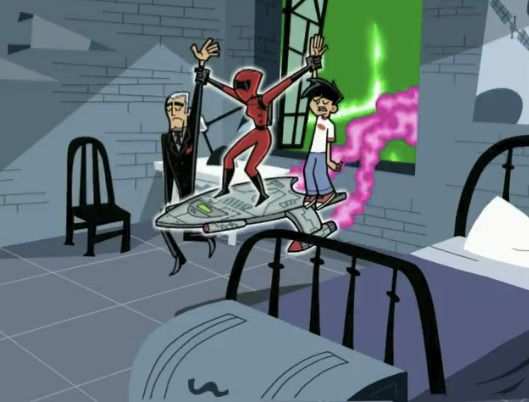
holding up a grown man and a teenager your own weight with one arm each?? okay miss girl, I see those pull ups coming into clutch
#see I already knew Valerie was one of Danny's actual love interests#I just didn't see how they would get there since she was a bully#but enemies to lovers? I'm pleasantly surprised#this show overall is better than I thought it'd be#it can be a little predictable but the character writing is actually quite good#no two characters are written the same#and I appreciate them bringing back recurring villains#dp#danny phantom#liveblog#Valerie Gray
2K notes
·
View notes
Text
I love Kaidan Alenko a lot, lol. Every single thing about him, I love so much.
He knows exactly who he is and is comfortable with himself; he doesn't "need fixing" and tells Shepard that outright.
He's got a steadfast sense of morality and won't compromise his beliefs for anyone, not even his partner. He apologizes after Horizon but he won't say he was wrong. (And he knows he wasn't.)
He was a skilled and decorated officer even before joining the Normandy. He's hard-working, driven, and intelligent. His promotions feel earned. He outranks Shepard by ME3 because he's a damn good soldier.
His biotics set him apart, and throughout the trilogy, he becomes more assured of himself and confident in his abilities.
He goes from saying stuff like "I may as well get a paycheck for (being biotic)" to mentoring other biotics in the military and running his own special forces squads.
From holding back because he's afraid of hurting someone to learning to reave and bragging about it, embracing his biotics as something good. Something to be proud of— because they are.
Even after everything he’s been through, he’s not bitter. He’s not jaded. Underneath it all, he’s still the kid who read books about the hero going to space to prove himself worthy of the person he loves (or, you know, for justice.) He’s still a romantic.
He left BAaT feeling like he screwed everything up and after taking some time, rejoined the Alliance to serve because he wanted to make a difference. And he does. He has such a positive impact on everyone around him.
I love him. He’s an incredibly strong, kind, honest, and brave character. 💙
#mass effect#kaidan alenko#shenko#my writing#I COULD WRITE A THESIS ON HOW MUCH I LOVE KAIDAN ALENKO!!!!!! I AM MENTALLY STABLE!!!!!#‘he’s a boring comic sans character’ anyway get better soon#or don’t 🔪👀
586 notes
·
View notes
Text
Omg Transformers Cyberworld turned out being much better than I expected
#imma go draw a magic circle to summon Jazz into this show#I need Jazz to exist in this specific style of writing he would be so so fun#like in the Earthspark it would be ehhhhh questionable. because ES really doesn’t know how to handle their characters#they’re all stupid but the show pretends to be serious and it’s. ghm.#yeah let’s say I believe they could do better#but Cyberworld doesn even try to pretend being big and serious and complicated#the show knows what it is and the show is proud of it#what it is. in question. a circus~#Like they all are fucking stupid but they are all stupid on purpose. they don’t pretend to be anything else#it reminds me of ‘’Rise of the TMNT’’#I love when a show is proud to be full of clowns
318 notes
·
View notes
Text
just a little something about Sevi with an artist lover..
You’re too absored in the way your pencil scratches against the paper as you sketch Sevika,her sharp jaw as she leans her head to the side,the way her body curves against the small couch in an effort to fit in and her relaxed expression. She’s lazily lounging on the couch watching a shitty romcom she claims she put on just because,you really like it and she doesn’t really care what she watches as long as you’re together.In reality you have conditioned her into your way of living and it’s cute how much she’s enjoying it..
“You’re drawing again?” Her voice rings through your ears and this time when you lift your head up to observe her she’s staring right back at you. You crack a guilty smile as you avoid her stare. It’s not that Sevika is angry at you for drawing her or anything.. she’s just a little shy,because she’s smart enough to realise how much observations is put into sketches like this,studying the subject till you can replicate it,and the thought of you staring at her for minutes on end with that little frown between your eyebrows gets her a little self conscious.
“Could’ve told me y’know,would’ve picked a sexier pose or something.” She amused,trying to hide her awkwardness.
“You’re always sexy,Sev.” You close your sketchbook shut,setting everything down to jump right next to Sevika on the couch and show her the love she deserves.
#sillyposting#sevika x y/n#sevika deserves better#soft sevika#sevika x reader#sevika x you#sevika#am i okay? not really actually maybe im just a bit lonely but hey i have insert comfort character#i love her sm#i do my best#idk how to write#im gay as fuck
518 notes
·
View notes
Text
(disclaimer that i haven’t actually played ea, my impression of it is only based on what i’ve read/seen online) but i actually don’t think ea wyll would have been a more compelling character. we frankly did not need another brash character, or one that’s treading the line of power hungry. wyll did not need to be darker or more morally gray to be more interesting.
it may be because i actually find his kindness to be the most compelling aspect about him. he is a man that’s been stripped of his home, of his name, of his appearance and he’s clinging to that kindness and goodness as the last aspects of himself. he wants people to see him as the blade, because wyll is a memory of a memory (his lines). good or kind doesn’t mean easy and we see first hand what kind of punishments he faces for choosing to do the right thing but he’ll do it to keep his soul with whatever he has left. the very same soul that’s been given to a devil.
and he’s not above violence quite the opposite. he approves of going after the duergars when he hears they murdered the myconoid’s children. he says they should bathe gortash in his own blood. he has no mercy for vile individuals but he forgives like it’s breathing.
that’s not to say his writing wouldn’t have benefitted from care and attention that frankly was not given. or a few additional scenes that allow you to see behind the high charisma, the memory of a memory that’s struggling to carry it all.
but i don’t know i think that wyll, who might’ve once been naive but he hasn’t been for many many years. who saw the injustice of the world and got angry at everyone (mortal and gods) who wouldn’t help. who chooses to be kind exactly because the world isn’t. who keeps that choice, the only agency he has with a bloodied grip, and that’s something no one could take from him. it is that conscious choice to act despite the terrible situation he found himself in at only 17, that is the beating heart of his character.
good and moral or honourable is not necessarily boring. you may personally not wish to engage with it or find yourself gravitating towards, but it doesn’t make it less compelling by default.
i think one of the lines in the beginning about how he doesn’t remember much of the battle, but he remembers drying that boy’s tears, is the essence of all that above, and the kind of man wyll wishes to be (& actually is)
#bg3#wyll ravengard#something something the ursula le guin quote about only finding evil interesting and the actual banality of evil#idk i just keep seeing here’s how wyll could have been better and it’s either traits of other companions or making him worse imo#he Needed the writers to actually follow through with their writing and larian to actually Care#when half of his scenes are still bugged#but i don’t believe he is boring by default#more that people a aren’t getting to know his character#b this wave of pushing towards this morally gray as the only realistic and interesting option#which btw good doesn’t mean not flawed#idk just wyllll ily#it’s also late and i’m salty bc work but yeah
234 notes
·
View notes
Text
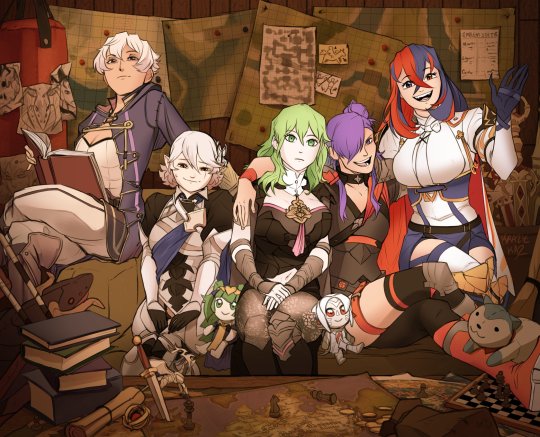
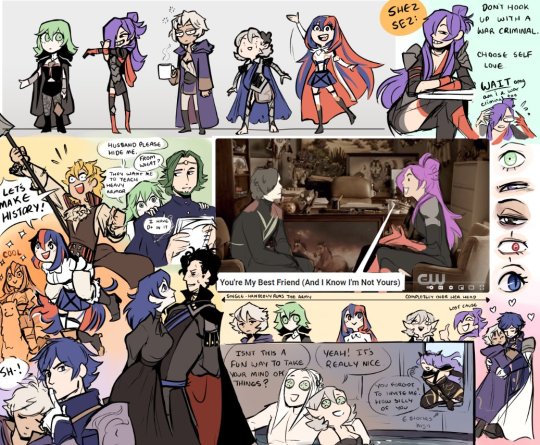
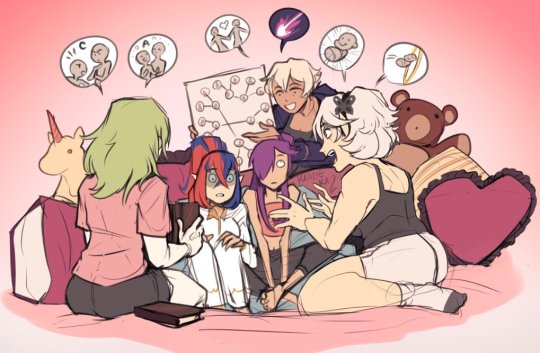

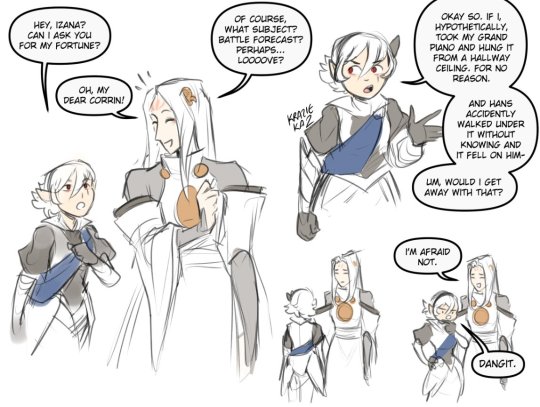
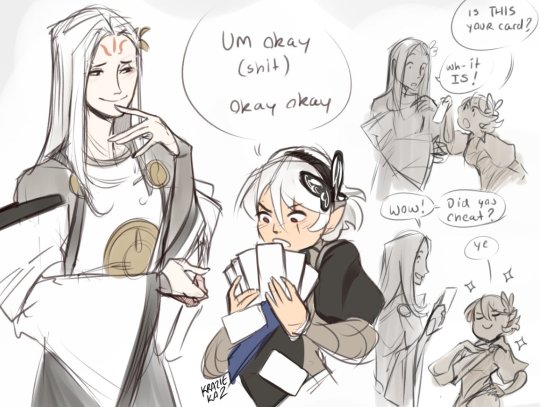
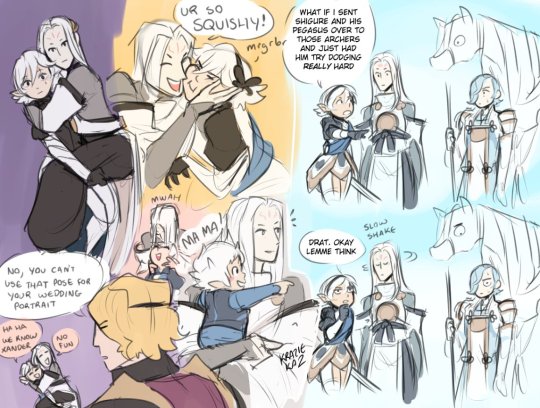
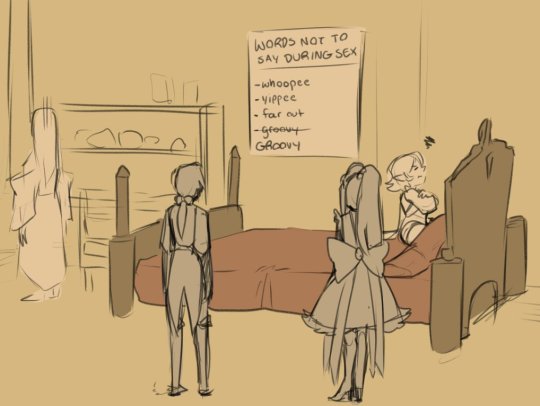
I've played the Fire Emblem Husbando Dating Simulator Games
#what is it about flawed media that makes fanart so compelling#awakening was a much stronger game than fates but i wanted to draw Corrin more than Robin#sometimes... things that are better written... are harder to draw funny doodles for rip#carrying over my posts from twitter choo chooooo#this one was posted to twitter so long ago im so sorry#anyway favorite protag: Shez#she's so stupid and explicitly so#If I were to rank the games... hm....#Houses for character writing but Engage for gameplay#Fates for map design#Awakening has the strongest core story I think#and Hopes has Shez#so there are no clear winners#i know there's going to be ppl asking where the other femc's are#answer: i cannot play as Kris in the west so i dont know her she's a stranger#secret confession i have no idea why anyone would use the friendship seals in fates i dont get them#also i still think Alear asking OG Army Breeder Sigurd how he feels about eugenics is funny thank u#fe3h#fe awakening#fe fates#few3h#byleth#corrin#shez#alear#there is no way robin has her own tag
1K notes
·
View notes
Text
"Toshiro Is Sexist," "Toshiro Owns Slaves": What's Really Going on With This Guy?
I've seen a lot of debate on whether or not Toshiro is problematic because he's a slave owner or because he's sexist in the context of his crush on Falin. While I do want to examine his relationship to Falin, I'd like to take a few steps back and unpack his upbringing first. We'll dive into the gender and class dynamics he was raised with and how it impacts his behavior in the main storyline.
Like all people, Toshiro is shaped by the environment he grew up in. Toshitsugu, Toshiro's father and the head of the Nakamoto clan, is the most impactful model of authority and manhood in his life. Toshiro does recognize some of his father's flaws and tries to avoid replicating them. But whether or not he emulates or subverts his father's behavior, Toshitsugu is often the starting point for Toshiro's treatment of others, particularly marginalized people.

The Nakamoto clan exists under a patriarchal hierarchy with Toshitsugu at the top. As noted by @fumifooms in their Nakamoto household post, his wife has more authority than Maizuru. She's able to ban Maizuru from parts of their residence, but despite disliking his infidelity, she can't divorce him or stop him from cheating on her. Their marriage is not an equal partnership.

On an interpersonal level, Toshitsugu and Maizuru also have a fraught relationship. While she does seem to care for him, she's often frustrated by his thoughtless behavior.
For example, he drunkenly buys Izutsumi for her — without considering how she'll have to raise this child — and invades her room in the middle of the night. When he cryptically says, "It's all my fault," she replies, "I can think of a lot of things that are your fault." She calls him an "idiot" and "believes that [Toshiro] will grow up to be a better clan leader than his father," implying that she takes issue with Toshitsugu's leadership.


Because Maizuru and Toshitsugu are described as being "in an intimate relationship" and "seem[ing] to be lovers," Maizuru appears to be a consensual participant. Still, this doesn't negate the large power imbalance between them as a male noble clan leader and his female retainer. This imbalance introduces an insidious undertone to Maizuru's frustration with Toshitsugu. Like Toshiro's mother, Maizuru doesn't have the agency to do as she pleases in their relationship; he has the ultimate authority. For instance, she doesn't seem to want to raise Izutsumi, but she has to anyway.

While Maizuru's role as Toshitsugu's mistress is significant, she's also the Nakamoto clan's teacher and Toshiro's primary maternal figure. She cares deeply for Toshiro: tailing him, feeding him, and taking responsibility even for his actions as an adult. While it might seem sweet that she cares for him like a son at first, Maizuru was notably fifteen years old at the time of his birth. In the extra comic below, he's six years old and has already been in her care for some time. Even if we're being generous and assuming that she didn't start raising him until he was six, she was still only twenty-one at the time she was parenting her boss/lover's child with another woman.

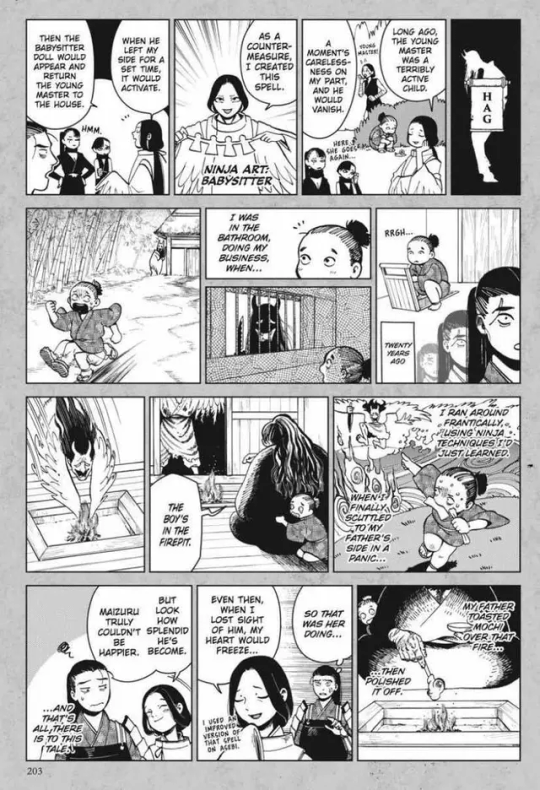
Maizuru's roles as mistress and maternal figure, in addition to her role as retainer, demonstrate the intersection between gendered and class oppression in the Nakamoto household. Despite her original role being a retainer trained in espionage, Toshitsugu presses her into performing gendered labor for him and eventually, Toshiro. She's expected to be Toshitsugu's lover, perform emotional labor for him as his confidant, care for his child, and carry out domestic tasks like cooking. She says, "Even during missions, I was often dragged into the kitchen." If she was a male servant, I doubt she would have been expected to perform these additional tasks. She can't avoid these tasks either, stating that her "own feelings don't factor into it."


Toshitsugu disregards his wife's and Maizuru's desires and emotions to serve his own interests. Because he has societal power over them as a nobleman and in Maizuru's case, her master, neither woman can escape their position in the household hierarchy.
As a result, Toshiro grew up within a structure where men and male nobility, in particular, wield the most societal power. The hierarchical nature of his household and society discourages everyone, including him as a clan leader's eldest son, from questioning and disrupting the existing hierarchy.
The other Nakamoto household members also internalize its sexist, classist power dynamics.
For example, Hien expects that she and Toshiro will replicate the uneven dynamics of the previous generation, regardless of her personal feelings. She sees her and Toshiro's relationship as paralleling Maizuru and Toshitsugu's relationship; she is the closest woman to Toshiro and his retainer, so she's shocked when Toshiro doesn't attempt to begin an intimate relationship with her. Notably, she doesn't have actual feelings for him. Her expectations are centered around the household's precedent of placing emotional, sexual, domestic, and child-rearing labor onto the female servants without any regard for their personal desires.
Hien also probably knows that her position in the household will improve if she is Toshiro's lover because she's seen it improve Maizuru's position. However, the fact that being the future clan leader's lover is the closest proximity she, as a female servant, has to power further reveals the gendered, class-based oppression she and the other women live under.

It's important to note that the Nakamoto clan bought Benichidori, Izutsumi, and Inutade as slaves, so they have less power and agency than Maizuru and Hien. The clan further dehumanizes Izutsumi and Inutade as demi-humans; their enslavement contains an additional layer of racialization.

Toshiro isn't oblivious to the gendered, class, and racial power dynamics of his household. He tries to distance himself from participating in its exploitative power structure. He walls himself off from Hien, who he's known since childhood, to avoid replicating his father's behavior and making his servant into his lover. He disapproves of his father's enslavement of Izutsumi and Inutade, and he lets Izutsumi go when she runs away in the Dungeon.

But does any of this absolve him of his complicity in his household's sexist, classist power dynamics and racialized slavery?
The short answer is absolutely not.
Despite his distaste for his father's exploitation of his servants and slaves, Toshiro still uses them. He refers to his party as "his retainers," and he has them fight and perform domestic tasks for him. You could argue that Toshiro doesn't like to and thus, doesn't regularly use his servants and slaves. In the context of him asking his retainers to help him rescue Falin, Maizuru says, "The only time he ever made any sort of personal request was for this task." But it shouldn't matter whether exploitation is a regular occurrence or not for it to be considered harmful. Toshiro asking Maizuru to cook him a meal still constitutes asking his female servant to perform gendered labor for him. He's also very accustomed to her grooming and dressing him.



Maizuru sees feeding, washing, and even advising Toshiro romantically as fulfilling Toshitsugu's orders to care for his son. They aren't fulfilling a "personal request." But just because her labor has been deemed expected and thereby devalued doesn't mean that it isn't labor or that she isn't performing it.

Maizuru's dynamic with Toshiro is also complicated by her role as his maternal figure. She loves him and wants to take care of him, and she doesn't have a choice in the matter. During Toshiro's childhood, the onus was on Toshitsugu to cease exploiting his lover and release her from servitude, but Toshiro is now an adult man. Seeing as how Maizuru defers to his wishes and calls him "Young Master," they still have a power imbalance that he's passively maintaining. Ideally, he would not ask anything of her until he has the authority to release her from servitude.
Throughout the story, Toshiro acts as if he has no agency and quietly disapproving of his father's actions absolves him of his participation in maintaining oppressive dynamics. While his father still ranks higher than him, he's essentially his father's heir. He has much more power than Maizuru, the highest-ranked servant. At the very least, he could leave his slave-owning household.
Unfortunately, his refusal to confront injustice is consistent with his character's major flaw: he does not express his opinions, desires, or needs. While this character trait obviously hurts his friendships, it also furthers his complicity in the injustices his household runs on.
Toshiro's relationship with eating food — the prevailing metaphor of the series — also parallels his relationship with confronting injustice. Maizuru mentions that he was a sickly child, so the act of eating may have been physically uncomfortable for him. As an adult, his refusal to eat crops up during his rescue attempt of Falin. Denying himself food might have been punishment for not accomplishing important tasks like rescuing Falin and/or a way to maintain control over something in his life when he felt like he'd lost control over the rest of it, again in the context of losing Falin. (Note: I suggest reading this post on Toshiro's disordered eating by @malaierba.)
But he cannot and does not avoid consuming food forever.

Similarly, Toshiro keeps his distance from his retainers and tries not to use them until the Falin situation occurs. His efforts to avoid exploiting his retainers amount to inaction — things he doesn't ask of them or do to them. But his inaction does nothing to dismantle the existing hierarchy that places his retainers under his authority, denies them agency, and often marginalizes them as not only servants or slaves but as women, and he ends up using them as servants and slaves anyways.
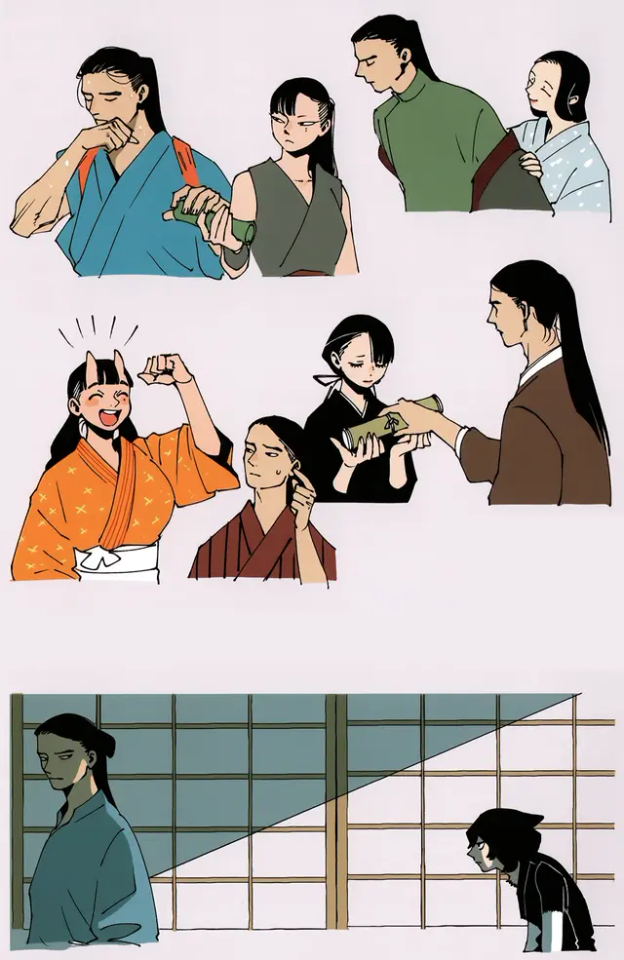
Returning to the narrative's themes of consumption, Toshiro cannot avoid eating just as he cannot avoid perpetuating the exploitative system of his household. The Nakamoto clan consumes the labor and personhood of those lower in the hierarchy. The retainers' labor as spies and domestic servants is the foundation of the clan's existence. Thus, the clan consumes their labor to sustain itself.
Within this hierarchy, the retainers' personhood is also consumed and erased. As Izutsumi describes, they are given different names and stripped of their agency to reject orders or leave. Maizuru and Hien also say their feelings are irrelevant in the context of Toshitsugu's and Toshiro's wants and needs. Both women are expected to comply with whatever is most beneficial and comfortable for the noblemen. Clearly, despite Toshiro's detachment from his household's functions, these social structures remain in place and harm the women under him.

Although we know the Nakamoto clan has male retainers, the choice to highlight the female retainers seems intentional. We're asked to interrogate how not only being a servant or a slave in a noble household impacts a person's life and agency, but how being a woman intersects with being a member of some of the lowest social classes.
Toshiro only distances himself from his father's behaviors of infidelity and exploitation so long as it doesn't take Toshiro out of his comfort zone. He doesn't free his slaves. He's far too comfortable with his female retainers performing domestic labor for him, and he barely acknowledges their efforts; they're shocked when he thanks them for helping him save Falin. He hasn't unpacked his sexist (or classist or racist) biases because he perpetuates his household's oppressive hierarchy throughout the narrative. Considering all of this, he inevitably brings this baggage to his interactions with Falin.

Falin is presumably one of the first women he's had extended contact with that isn't his relative or his family's servant. Because of his trauma surrounding his father and Maizuru sleeping together, he understandably falls for a woman as disconnected as possible from his father and his clan. He seems to genuinely like Falin, respects her boundaries, and graciously accepts her rejection. His behavior towards her is overall kind and unproblematic.
But if Falin had gone with him, she would've likely been devalued and sidelined like the other women of the Nakamoto household. No matter how much he loves Falin, simply loving her cannot replace the difficult work of unlearning his sexism. Love, of course, can and should be accompanied by that work, but by the close of the narrative, we gain little indication that Toshiro acknowledges or seeks to end his part in exploiting and devaluing women and other marginalized people.
A spark of hope does exist. Toshiro expressing his feelings to Laios and Falin suggests that his time away from home has encouraged him to speak up more. Breaking his habit of avoidance may be the first step towards acknowledging his complicity in systems of injustice and moving towards dismantling them.
Special thanks to my very smart friend @atialeague for bringing up Toshitsugu's relationship with Maizuru and the replication of dynamics of consumption and class! <3
#toshiro nakamoto#maizuru#hien#toshitsugu nakamoto#falin touden#izutsumi#inutade#benichidori#shuro#dungeon meshi#dunmeshi meta#dunmeshi analysis#quite literally free my girls#i got so sad after finding that parallel between maizuru and hien both saying their feelings don't matter#reading maizuru's character bio and how she's a brilliant woman#but she's stuck w toshiro's dad like#i'm toshitsugu's number one hater he better watch out#also thinking about how toshiro looked up to maizuru not even his own parents until he found out about maizuru and his dads relationship#that's devastating bro#im entering my clickbait title era LOL i was told my prev titles were too academia pilled and boring sounding#i think i want to write about izutsumi's and inutade's relationships w gender next#delicious in dungeon#dunmeshi#*mine#*meta
954 notes
·
View notes
Text







What advice would post season 4 Succession characters give to their season 1 selves??
(they all end up ignoring their own advice for some reason or another and the show goes the exact same)
#succession#succession hbo#succession fanart#Kendall roy#roman roy#shiv roy#siobhan roy#tom wambsgans#greg hirsch#gerri kellman#logan roy#comics#my art#i LOVE when characters end a show looking different to how they started#< you can tell I'm a cartoon watcher because this happens in literally every live action show#so drawing the character's differences was so fun#really wanna get better at writing them all#especially shiv
289 notes
·
View notes
Text
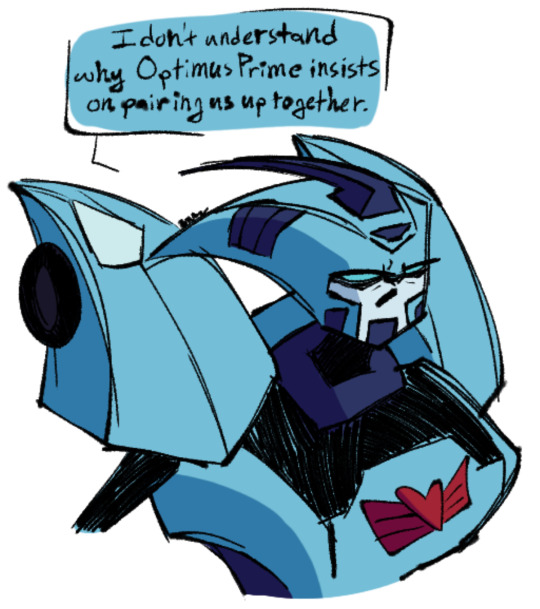

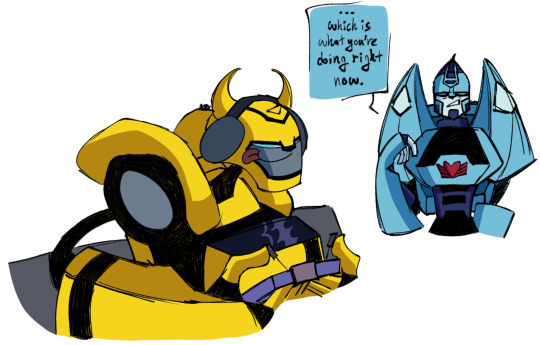

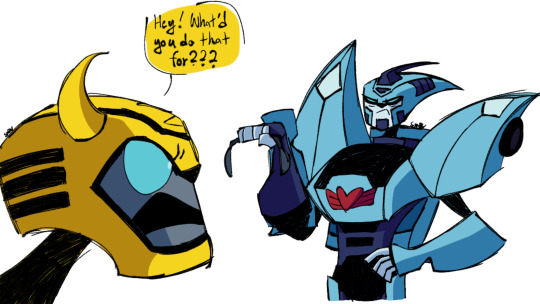
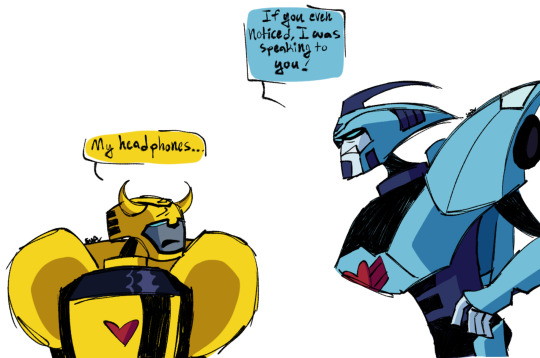

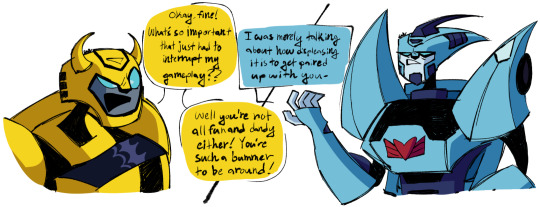
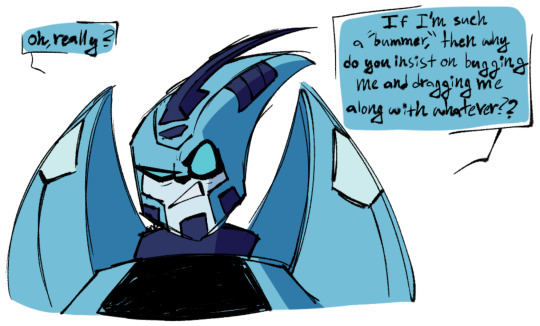
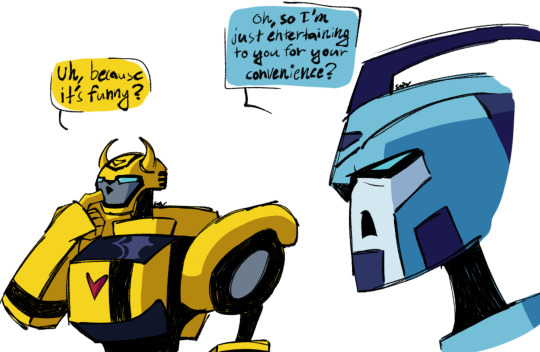
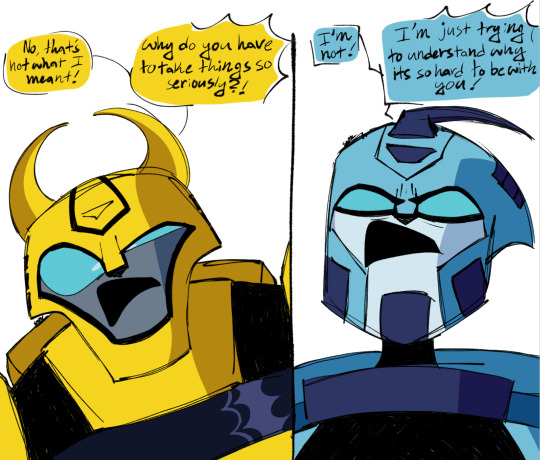


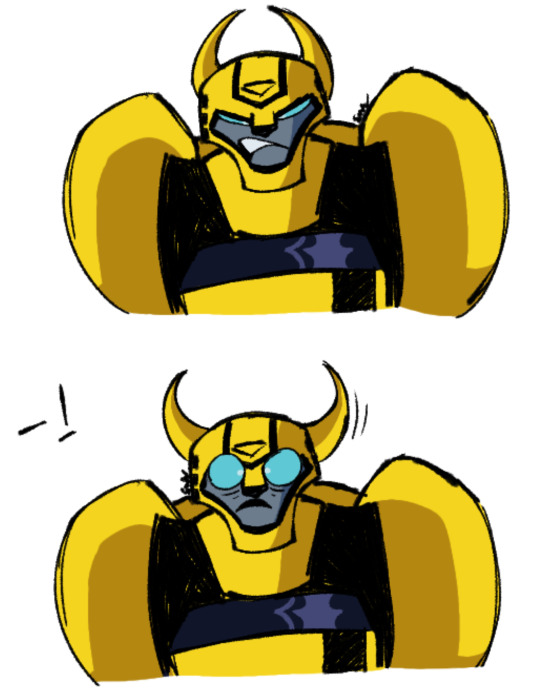
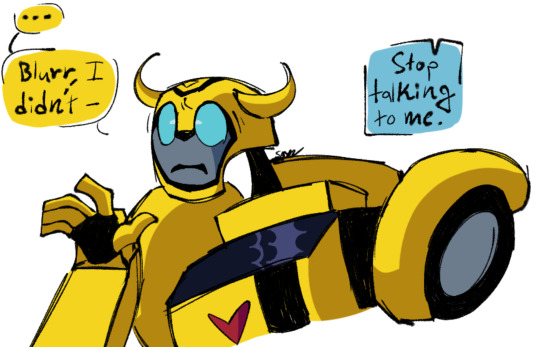
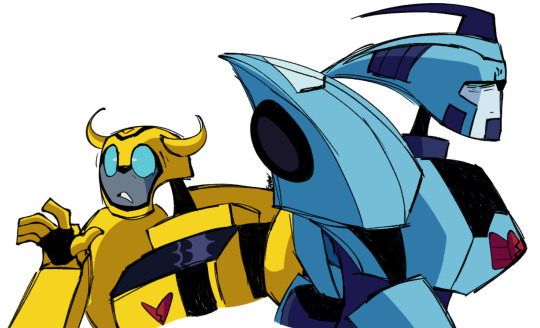


hey so. do u remember that blurrbee angst i mentioned this one time. bc i sure do
#the colors look less bright on my phone sigghhh#anywho so abt this angst#ok so like this specifically takes place in this blurrbee au i have where they’re lowkey toxic yaoi for a bit but they slowly become friend#and then soon they kiss. its amusingly a slowburn on blurrs end but bee has had a crush on him this whole time#it would take place after s3 ofc#they do nawt get along for a while as u can see it’s very tragic to me but things get better i promise#just ignore the fact that bee told blurr kys#he just got a little angry…#tfa#tfa bumblebee#transformers animated#blurrbee#beeblurr#tfa blurr#oh no art#also im still trying to learn how to write these characters so sorry if this seems too dramatic or anything </3#but then again these two are pretty dramatic themselves#also ive made so many hcs and lore for blurr im like lowkey treating him as my oc. love it when this happens
227 notes
·
View notes
Text
KINGERS GAMBIT - CHAPTER 1




“Why couldn’t we just play in the tent-“
(Work In Progress and Behind The Scenes stuff in my Shitpost account!)
#WELCOME TO MY KINGER AND CAINE ANALYSIS COMIC#REFRESHMENTS WILL NOT BE PROVIDED!!!!!#Caine TADC#Kinger TADC#TADC#The Amazing Digital Circus#TADC comic#im gonna refrain from yapping too much about their characters/relationship here#cause i wanna see how well I can rely on only my visuals to get my point across!#as torturous as thatll be!#but uh what i will say is the biggest reason i delayed on making this for as long as i did#was cause i didnt wanna mischaracterize my 2 favorite guys on accident#but im cool now and i got over that#but also omg please critique i love getting better at writing and analyzing writing#pretty please#ANYWHO THANK YOU FOR YOUR TIME#idk when the next update will be but the whole chapter scripted out-
224 notes
·
View notes
Text
Why are some writers so afraid to make up their own metaphors? I just saw a quote by George Orwell in which he said, “Never use a metaphor, simile, or other figure of speech which you are used to seeing in print,” and honestly? THAT IS SO REAL!!
Your metaphors should feel like they belong to your story, your characters, your world. If your protagonist is a computer nerd, why would they be boring and describe something as “light as a feather” when they could say it’s uhm idk… “as light as a wireless mouse” or “as easy to carry as a USB stick.” I’m not a computer nerd lol but I hope you get the point: your metaphors should feel personal to your characters and story, they should reflect how they think, what they care about, and the world they live in.
If they’re an athlete, they’re likely going to compare things to their sport or game strategies, etc. They won’t describe their exhaustion as “feeling like a ton of bricks”— they could say it “hits like the last mile of a marathon” or something. If they work at a flower shop they would compare smells and colours to flowers and plants right?
Not only does making up your own personal metaphors and similes help you avoid clichès, it also adds so much depth to your characters and the quality of your writing. It’s also a great way to inject humour into your narrative btw, literally so many benefits…
So yeah. Make up your own metaphors. Seriously!
#writeblr#writers of tumblr#author#young writer#teen writer#writerscommunity#write with me#writer things#writer problems#writing advice#writing post#novel writing#fantasy novels#romance novels#George Orwell#Writing quotes#grammar#linguistics#write better prose#character development#how to write better#fanfiction#fanfic writers#aspiring author
172 notes
·
View notes
Note
Keep hearing people say maribug keep asking adricat if he's ok and he keep saying he's ok instead of telling her his problem but I don't remember it happened more than once in s4 in Rockettear but even then the circumstances of that episode did warrant the "nothing" answer he gave her unless he want to tell her that "nino tell me you let nino and alya know each other identity" which will reveal adricat identity. So when else did she ask? about the thing in hack-san, I think another credit goes to alya since she's the one who bring the topic to maribug who seems to be blissfully unaware that her leaving without telling adeicat that she send subtitute would be a problem.
I didn't get into this side of things in my other post because it was long and I wanted to focus on why Chat Noir's behavior was so frustrating, but this ask brings up the other big reason why the season four conflict was such a frustrating and terribly written plot line. Specifically, the part of your ask where you point out that Maribug seems blissfully unaware that her actions are having a negative impact on Chat Noir until someone points it out to her.
Yes, she is presented as blissfully unaware of this and every other interpersonal conflict we're given in season four. Your ask treats this as a failing on Maribug's part as if she should have obviously realized that she was in the wrong, but that's the whole problem. Telling kids - telling anyone really - that they should just magically know what others need is a frankly terrible life lesson as that's just not how the world works. You cannot just assume that everyone will have the same view of the world as you do and instantly pick up on the same issues as you do. That is the path to easily avoidable frustration and conflict. It also teaches people to assume that their view of the world is inherently correct when that is rarely the case. We often don't know the whole story and the other person's point of view may end up being equally or even more valid. This issue is extremely present in season four as Marinette has legitimate reasons to behave the way she does, which I'll get into in a bit.
If Marinette were written as feeling guilty about how she was treating Chat Noir, then this would be a different story. She'd be way more in the wrong and would shoulder a much greater portion of the blame. But as is? She has no idea that she's doing anything wrong. And until someone takes the time to tell her that her actions are causing harm, she is going to continue causing harm because she has no idea that she's causing harm.
In fact, I'd argue that the Alya thing in Hack San is a point in Maribug's favor. Throughout the episode, we see Marinette sending Alya messages on ways to be a good partner to Chat Noir, proving that she does in fact care about him. And then, as soon as Alya says, "You need to talk to Chat Noir," what does Maribug do?
She goes and talks to Chat Noir, giving him a pretty good apology for the problem she now knows she caused. Because, shockingly, Maribug doesn't actually want to hurt her partner. She also clearly cares about his feelings, making me want to take the season four conflict and tear it into itty bitty pieces because what is the conflict even supposed to be when you write shit like this?
I want to briefly step away from Miraculous and talk about this issue in a broader context via this YouTube short:
This short is from a Vietnamese woman who moved to Germany. Her YouTube channel is about her experiences there, including things like the short above which goes into the differences between what it means to be a dinner guest in Vietnam and what it means to be a dinner guest in Germany. In Vietnam, it's apparently standard for the guests to cook dinner with you where as, in Germany, you're expected to have the meal ready when the guests arrive, making this a situation where it's super easy to come across as rude just by doing what you think is normal.
Society is relatively aware that these types of culture clashes are a thing, but you don't have to be from different cultures to have these types of situations. Every person has their own unique needs and ideas of what "normal" is. The culture they were raised in will affect this, but so will their family, their personal needs, and many other factors. Two people can be raised on the same street and wind up with wildly different world views even though they supposedly share a culture. This is extra true when you add in compounding factors like neurodiversity, which is why it's an exercise in futility to say, "But Maribug should have realized..."
Well, she clearly didn't. And you can't change that she didn't realize whatever you're mad about. All you can do is have someone tell her what she's doing wrong. If she then continues the behavior, go ahead and judge away. But if she immediately corrects it like she did in Hack San? Doesn't that just prove that she truly didn't know that Chat Noir was hurting and would have probably fixed all of his problems if someone just pointed them out to her?
This is only exacerbated by the fact that Marinette's behavior in season four is largely unchanged from her behavior in previous seasons. The only major change is that she revealed her identity to Alya, but as soon as that's pointed out as a problem, she course corrects with an apology. After that, she thinks that everything is okay because why wouldn't she? Chat Noir said it was fine and everything else has been business as usual.
Bringing temp heroes into help as needed? That's been going on since season two. Having these additional members has been vital in multiple battles and there have been plenty of times where Chat Noir took a background role to the temp hero of the day like in Sapotis, Rena Rouge's season two debut. So why would Maribug suddenly think that this dynamic is a problem when it's been working fine for so long? We even had a whole episode about how Chat Noir was still needed in spite of the new heroes back in season three! Or, at least, I think that was Desperada's message? This show is shockingly bad at giving clear lessons.
Keeping guardian knowledge from Chat Noir? That's also been going on since season two and was even treated as a conflict that supposedly got resolved in the episode Syren which was the episode that ended with Master Fu coming to the mansion to talk to Adrien after everything was over.
When I watched that episode, I assumed this meant that Chat Noir was going to be more involved in things like picking the temp heroes. I actually thought this was how we were going to get Queen Bee because I knew she was going to be a thing, but it made no sense for Marinette to pick Chloe for a miraculous. Of course, I was wrong. Nothing changed after Syren. Chat Noir remained nothing more than the comic relief while Ladybug got all the insider info.
To be clear, I think that was a terrible move writing wise, but it doesn't change the fact that this is what they went with. This is the established dynamic. I can't even say that Alya learning Marinette's secret led to something new. She's just taken Marinette's old role while Marinette has taken on Master Fu's old role. This show loves it's status quo and Chat Noir has been at least tolerant of that status quo since Syren, so it's not surprising that Maribug doesn't register that this is a thing that should change and no one bothers to point it out to her even though she has a mentor in Tikki (and Su Han, I guess?) and a confidant in Alya and a whole slew of Kwamis who could also provide insight if they were allowed to do that sort of thing. (Sass and Wayzz were robbed of mentor roles.) Additional blame goes to Plagg because he should absolutely have told Adrien to talk to Ladybug. What is the point of giving these characters mentors who never mentor? It's aggravating in the extreme.
To circle back to the first part of your ask, outside of Hack San and Rocketear, I don't think there are any times when Ladybug invites feedback from Chat Noir unless you want to give credit to the end of Kuro Neko:
Cat Noir: (lands next to her) I've been a really temperamental kitty, m'lady. I didn't realize how much trouble I'd make for you by giving back my Miraculous. Ladybug: (sits closer to him) Just because I don't need you all the time doesn't mean that I don't need you at all, Cat Noir. No one could ever replace you.
Which isn't Maribug inviting him to tell her what's up, but she is clearly willing to listen to him and reassure him, further backing up my point about this conflict being some of the worst writing I've ever had to suffer through. If Maribug always fixes the issue as soon as she learns about it, you are not writing a situation where she's clearly in the wrong. You are writing an easily solved communication issue where she gets blamed for something she clearly doesn't realize she's doing wrong and it is so frustrating!!! I feel so bad for her. The next episode is Penalteam, btw, which starts the battle with this gem:
Ladybug: (laughs) Nice scare tactics, but it's not gonna work. Cat Noir and I are the best at soccer! Cat Noir: (Whispers to Ladybug) I don't know a thing about soccer M'lady. Maybe it's time to call the real team?
And basically just spends the whole episode making Chat Noir seems like a worthless partner while Maribug tries her best to make him - and everyone else - feel special.
Oh, and the episode before Kuro Neko? Well, it's technically Ephemeral, but that got magically overwritten so let's go one further back and we get to Dearest Family, which ends with this:
Cat Noir: (grabs a golden paper crown on the coffee table) Since I'm the king, (wears the crown on his head) would you be my queen, Ladybug? Ladybug: With pleasure, kitty cat! Tradition is tradition!
Oh yes, these two are in such conflict and Maribug does nothing to validate Chat Noir. He's in pain every episode and she's just totally oblivious to it.
If that was what they wrote, then I'd probably agree that we needed more instances of her asking if Chat Noir was okay. But it's not what they wrote. If you look through the list of season four episodes, you'll find that less than half of them deal with the supposed conflict of the season (by my count, only 8 of the 24 episodes before the final actually showcase the conflict and they are not in a logical order in terms of escalation as I tried to demonstrate above). The rest of the episodes flat out ignore it or even straight up work against the conflict like when Ladybug says this to Chat Noir in Guilttrip: "I probably don't tell you this enough, but I couldn't do this without you. And it'd be a lot less fun too."
Seriously, what even is this season? What is the conflict supposed to be? Because it sure as shit isn't Maribug undervaluing Chat Noir, if memory servers, season four sees her validate him more times than any other season. And it isn't her guiltily hiding things from him like so many fanfics claim because we have multiple points of evidence that prove that she's completely oblivious that there even is a conflict. So what conflict are the writers actually trying to write?
What's even more baffling is that none of this logically leads to the loss at the end of the season:
Maribug's new secrets didn't lead to her downfall. The only reason she lost was because of the secret that's always been there - a fact that's never revealed to her - and a freaking evil twin! So why did it matter that Maribug was keeping secrets? This is made even worse by season five maintaining all of the secrets, once again begging the question of what lesson were we trying to teach here???
Chat Noir wasn't needed for the final fight of the season, Maribug only needed the powers of a few of the temp heroes to win, a baffling ending to a season whose focus was Chat Noir feeling unimportant. You could scrap that conflict entirely and the ending would not change. In fact....
Adrien quitting to be nothing more than a good little boy who obeys his father would have actually saved the world from eventually being rewritten. If you think about it, the season four final actually punishes Adrien for being defiant. So does season five as, if Chat Noir had quit, his father would still be alive. I thought this show was supposed to be a romcom, not a tragedy. Why is Adrien being punished for being a hero? Is this supposed to be karma for lying to Ladybug with the whole Catwalker thing?
This shit is why I say I'm a writing salt, character sugar blog. I can't get mad at the characters when they're in such a nonsense story where things never logically tie together. They all deserve so much better.
None of this is meant to imply that ignorance is a blanket excuse for hurting others. Nor is it meant to imply that you have to forgive someone who hurt you just because they didn't mean to. There's a ton of nuance around these topics. But season four acknowledges none of that nuance while creating a situation that desperately needed nuance because there was no clear right and wrong here. Should Maribug work to be more aware of others feelings? Sure, but that journey can only start after she's made aware of her faults and no one ever points them out to her. Does Chat Noir need to work on clearly communicating his needs? Desperately, but no one is teaching him that lesson so he remains a terrible communicator who suffers in silence. What impressively bad writing.
#ml writing critical#ml writing salt#adrien deserves better#marinette deserves better#kuro neko salt#my queendom for some good character arcs#and good story arcs#there's just so much squandered potential here#ml fandom salt#ml fandom critical#Adding those tags because I am sick of people holding Marinette to unrealistic expectations#This was long so I didn't add this part of the rant but:#It's important to remember how much we know as an audience vs what Maribug knows#Adrichat is really good at putting up a front that everything is fine#And Marinette knows nothing about his homelife when he's Chat Noir#Plus the show has made this kids kinda terrible at understanding Adrien's home life#season four my beloathed#kuro neko my beloathed
509 notes
·
View notes
Text
When Eileen or whoever Sam's blurry wife is in a throw away line in a fic is pregnant to show that Sam's happy and doing good it kinda revolts me not gonna lie. We're really putting 2.5 kids on whatever woman shaped object is in Sam's love life? And on Sam for that matter? Who, by the end of the show, expressed zero interest in having a little baby and said he felt fulfilled by hunting, despite its downsides.
One of the reasons Sam and Eileen work well together is that they're both hunters and feel able to lean on each other in that regard, and yet pregnancy or motherhood is often the only thing we hear about Eileen in these cases. She's made into an incubator. Is the only vision of happiness she's allowed becoming Mary from the first minute of the Pilot?
#eileen leahy#saileen#in AUs as well this trend keeps appearing#In AU settings it'd be closer to how their partnership actually works to show that they're both successful in the same career field.#I knowww it's bc people aren't thinking very hard about it and are going 'sam with a little baby 😊'#and i still read majority destiel fics who don't care about sam further than they could throw him#i would HOPE in sam centered fics things are better for his female love interests#like I don't think Eileen is the most compelling character in the world and not every fic can or should dive into her motivations and such#but some thought? some minor spare thought? please?#and not just for eileen. this happened to jess a lot too when she was most the popular sam au love interest choice.#but we didn't know jess in the way we know eileen. she IS the barefoot and pregnant blonde girl fantasy bc she doesn't exist as a character.#so it feels a little less egregious with her although it's still an odd choice for sam in my opinion#it's possible that the majority of people writing her this way. did not watch the whole show.#and therefore missed her actual character. or weren't paying attention to Sam saying he's as content as he can be with The Life.
146 notes
·
View notes
Note
So I could be totally wrong but, I believe it was sort of expected that men/gentlemen lose their virginity before marriage in regency times. But I also there’s some fandom ‘debate’ about whether or not Mr Darcy would’ve had sex before getting married. So I was just curious about what your canon for Mr Darcy in T3W is. Is he a virgin or not?
I knew someone would ask me this eventually, haha. I've actually had really long conversations with my beta reader about this trying to figure it out. It sounds like this might all be stuff that you’ve already seen discussed in the fandom, but I’ve never thought about it deeply before and so these are new thoughts to me.
I keep going over the historical real-world likelihood, the authorial intent, and the text itself but I’m still not 100%. I’ll explain my thinking and what I find most likely, but here’s your warning that it’s not a clear cut yes/no.
Because on one hand, at that time period it was most common for men in his position to have seen sex workers or have casual encounters/mistresses with women from their estates. Though I do absolutely believe not all men did that, no matter how much wealth and power they had. To go back some centuries, William the Conqueror seemed to be famously celibate (no hints of male lovers either according to the biography I read) until his marriage, and there's no evidence of affairs after it either. The best guesses as to why are that it was due to his religious devotion and the problems that had arisen from himself being a bastard and not wanting to recreate that situation. Concerns over religion and illegitimate children would certainly still have been applicable in the regency to men who thought that way. And in modern times I've seen sex workers say that when an 18/21yo is booked in by his family/friends to 'become a man' often they end up just talking and agree to lie about the encounter. After all, it’s not like every man wants casual sex, even if they aren’t demisexual or something in that vein. But, statistically speaking, the precedent of regency gentlemen would make Darcy not a virgin.
On the other hand, just how aware was Jane Austen, the very religious daughter of a country rector, of the commonness of this? There’s a huge difference between knowing affairs and sex workers existed (and no one who had seen a Georgian newspaper could be blind to this) and realising that the majority of wealthy men saw sex workers at some point even if they condemned the more public and profligate affairs. The literature for young ladies at the time paints extramarital sex - including the lust of men outside of marriage - as pretty universally bad and dangerous. This message is seen from 'Pamela' and other gothic fiction to non-fiction conduct books which Jane Austen would have encountered. Here's something I found in 'Letters to a Young Lady' by the reverend John Bennett which I found particularly interesting as it's in direct conversation with other opinions of the era:
"A reformed rake makes the best husband." Does he? It would be very extraordinary, if he should. Besides, are you very certain, that you have power to reform him? It is a matter, that requires some deliberation. This reformation, if it is to be accomplished, must take place before marriage. Then if ever, is the period of your power. But how will you be assured that he is reformed? If he appears so, is he not insidiously concealing his vices, to gain your affections? And when he knows, they are secured, may he not, gradually, throw off the mask, and be dissipated, as before? Profligacy of this kind is seldom eradicated. It resembles some cutaneous disorders, which appear to be healed, and yet are, continually, making themselves visible by fresh eruptions. A man, who has carried on a criminal intercourse with immoral women is not to be trusted, His opinion of all females is an insult to their delicacy. His attachment is to sex alone, under particular modifications.
The definition of a rake is more than a man who has seen a sex worker once, it's about appearance and general conduct too, but again, would that distinction be made to young ladies? Because they seem to simply be continuously taught 'lust when unmarried is bad and beware men who you know engage in extramarital sex.' As a side note, Jane Austen certainly knew at least something about the mechanics of sex: her letters and literature she read alludes to it, and she grew up around farm animals in the countryside which is an education in itself.
We can also see from this exert that the school of thought seems to be 'reformed rake' vs 'never a rake' in contention for the title of best husband, there's no debate over whether a current rake is unsuitable for a young lady. And, from Willoughby to Wickham to Crawford, I think we have a very clear idea of Jane Austen's ideas of how likely it is notably promiscuous men can reform. This does not preclude the possibility that her disparaging commentary around their lust is based more on over-indulgence or the class of women they seduce, but it's undoubtedly a condemnation of such men directly in line with the first part of what John Bennett says so it's no stretch to believe she saw merit in the follow-on conclusions of the second part as well. Whether she would view it with enough merit to consider celibacy the only respectable option for unmarried men is a bit unclearer.
I did consider that perhaps Jane Austen consciously treated this as a grey area where she couldn’t possibly know what young men did (the same reasoning is why we never see the men in the dining room after the ladies retire, etc) and so didn't hold an opinion on men's extramarital encounters with sex workers/lower-class women at all, but I think there actually are enough hints in her works that this isn’t the case. Though, unsurprisingly, given the delicacy of the subject, there’s no direct mention of sex workers or gentlemen having casual lovers from among the lower-classes in her texts.
That also prevents us from definitively knowing whether she thought extramarital sex was so common, and as unremarkable, as most gentlemen treated it. But we do see from her commentary around the consequences of Maria Bertram and Henry Crawford's elopement that she had criticism of the double standards men and women were held to when violating sexual virtue. Another indication that she perhaps expected good men to be capable of waiting until marriage in the way that she very clearly believed women should. At the very least, a man who often indulges in extramarital sex does not seem to be one who would be considered highly by Jane Austen.
She makes a point of saying, in regards to not liking his wife, that Mr Bennet “was not of a disposition to seek comfort for the disappointment which his own imprudence had brought on, in any of those pleasures which too often console the unfortunate for their folly or their vice.” This must include affairs, though cheating on a wife cannot be a 1:1 equivalent of single young men sleeping around before marriage. However, the latter is generally critically accepted to be one of the flaws that Darcy lays at Wickham’s door along with gambling when talking about their youth and his “vicious propensities" and "want of principle." Though this could be argued that it’s more the extent or publicity of it (but remembering that it couldn't be anything uncommon enough that it couldn't be hidden from Darcy Sr. or explained away) rather than the act itself, or maybe seductions instead of paying women offering those services. I also believe Persuasion mentioning Sunday travelling as proof of thoughtless/immoral activity supports the idea that Jane Austen might have been religious enough that she would never create a hero who had extramarital sex.
So, taken all together this would make Darcy potentially a virgin, or, since I couldn't find absolute evidence of her opinions, leave enough room that he isn’t but extramarital sex isn’t a regular (or perhaps recent) thing and he would never have had anything so established as a mistress.
I’ve also been wondering, if Darcy isn’t a virgin, who would he have slept with? I’ve been musing on arguments for and against each option for weeks at this point. No romantasy has ever made me think about a fictional man's sexual habits so much as the question of Darcy's sexual history. What is my life.
Sex workers are an obvious answer, and the visits wouldn’t have raised any eyebrows. Discretion was part of their job, it was a clean transaction with no further responsibilities towards them, and effective (and reusable, ew) condoms existed at this time so there was little risk of children and no ability to exactly determine the paternity even if there was an accident. It was a fairly ‘responsible’ choice if one wanted no strings attached. In opposition to this, syphilis was rampant at the time, and had been known to spread sexually for centuries. Sex workers were at greater risk of it than anyone else and so the more sensible and risk-averse someone is (and I think Mr Darcy would be careful) the less likely they would be to visit sex workers. Contracting something that was known as potentially deadly and capable of making a future wife infertile if it spread to her could make any intelligent and cautious man think twice.
Servants and tenants of the estate are another simple and common answer. Less risk of stds, it can be based on actual attraction more than money (though money might still change hands), and is a bit more intimate. But Wickham’s called wicked for something very similar, when he dallies (whether he only got to serious flirting, kissing, or sleeping with them I don’t think we can conclusively say) with the common women of Meryton: “his intrigues, all honoured with the title of seduction, had been extended into every tradesman's family.” And it isn't as though Wickham had any personal duty towards those people beyond the claims of basic dignity. Darcy, who is shown to have such respect and understanding for his responsibilities towards the people of his estate and duties of a landlord, would keenly feel if any of his actions were leading his servants/tenants astray and down immoral paths. Servants, especially, were considered directly under the protection of the family whose house they worked in. I think it's undoubtable that Mrs Reynolds (whose was responsible for the wellbeing - both physically and spiritually - of the female servants) would not think so well of Mr Darcy if he had experimented with maids in his youth. It would reflect badly on her if a family entrusted their daughter to her care and she 'lost her virtue' under her watch. Daughters/widows of others living on the estate not under the roof of Pemberley House are a little more likely, but still, if he did have an affair with any of them I can only think it possible when he was much younger and did not feel his duties quite so strongly. Of course lots of real men didn't care about any of this, but Darcy is so far from being depicted as careless about his duties that the narrative makes a point of how exceptional his quality of care was. Frankly, it's undeniable that none of Jane Austen's heroes were flippant about their responsibilities towards those under their protection. I cannot serious entertain an interpretation that makes Darcy not, at his current age, at least, cognizant of the contemporary problems inherent in sleeping with servants or others on his estate.
A servant in a friend’s house would remove some of that personal responsibility, but transfer it to instead be leading his friend’s servants astray and in a manner which he is less able to know about if a child did result. That latter remains a problem even if we move the setting to his college, so not particularly likely for his character as we know it… though it wouldn’t be unusual for someone to be more unthinking and reckless in their teenage years than they are at twenty-eight so I don’t think having sex then can be ruled out. Kissing I can much more easily believe, especially when at Oxford or Cambridge, but every scenario of sleeping with a lower-class woman has some compelling arguments against it especially the closer we get to the time of the novel.
Men did of course also have affairs with women of ranks similar to their own, though given Jane Austen’s well-known feelings towards men who ‘ruined’ the virtue of young ladies we can safely say that Darcy never slept with an unwed middle- or upper-class woman. Any decent man would have married them out of duty if it got so far; but if he was the sort to let it get so far, I think it impossible Jane Austen would consider him respectable. Widows are a possibility, but again, the respectable thing to do would be to marry them. Perhaps a poorer merchant’s widow would be low enough that marriage is off the table but high enough that the ‘leading astray’ aspect loses its master-servant responsibilities (though the male-female ‘protect the gentler sex’ aspect remains) but his social circle didn’t facilitate meeting many ladies like that. Plus, an affair with a woman in society would remove many layers of privacy and anonymity that sex-workers and lower-class lovers provided by simply being unremarkable to the world at large. It carries a far greater risk of scandal and a heavier sense of immorality in the terms of respecting a woman’s purity which classism prevented from applying so heavily to lower-class women.
I think it’s important to note here that something that removes the need to think about duties of landlords towards the lower-classes or gentlemen towards gentlewomen is having affairs with other men of a similar rank. But, aside from the risk of scandal and what could be called the irresponsibility of engaging in illegal acts, it’s almost certain that Jane Austen would never have supported this. For a devout author in this era the way I’m calculating likelihoods makes it not even a possibility. But if you want to write a different fanfiction (and perhaps something like a break-up could explain why Darcy doesn’t seem to have any closer friend than someone whom he must have only met two or so years ago despite being in society for years before that) it does have that advantage over affairs with women of equal- and lower-classes. I support alternate interpretations entirely – it just isn’t how I’m deciding things in this instance.
I keep coming back to the conclusion that, at the very least, Darcy hasn’t had sex recently and it was never a common occurrence. It wouldn’t surprise me if Jane Austen felt he hadn’t done it ever. Kissing, as we can see from all the parlour games at the time, wasn’t viewed as harshly, so I think he’s likely made out with someone before. But in almost every situation it does seem that the responsible and religious thing to do (which Jane Austen values so highly) is for it to never have progressed to sex. I also don’t think it conflicts with his canon characterisation to say that he wouldn’t regard sexual experience as a crucial element of his life thus far, and his personality isn’t driven to pursue pleasure for himself, so it’s entirely possible that he would never go out of his way to seek it. So, I’m inclined to think that the authorial and textual evidence is in favour of Darcy being a virgin even if the real-world contemporary standard is the opposite. (Though both leave enough room for exceptions that I’m not going to argue with anyone who feels differently; and even if you agree with all my points, you might simply weight authorial intent/textual evidence/contemporary likelihoods differently than I do and come to a different conclusion).
Remember that even if Darcy is a virgin this wouldn’t necessarily equate to lack of knowledge, only experience. There were plenty of books and artwork focused on sex, and Darcy, studious man that he is, would no doubt pay attention to what knowledge his friends/male relatives shared. Though some of it (Looking especially at you, 'Fanny Hill, Memoirs of a Woman of Pleasure') should NEVER be an example of appropriate practice for taking a woman's virginity. Darcy would almost certainly have been taught directly or learnt through exposure to other men talking to make sex good for a woman – it was a commonly held misconception (since Elizabethan England, I believe) that women had to orgasm to conceive. It would be in his interests as an empathetic husband, and head of a family, to know how to please his wife.
Basically, I’m convinced Darcy isn’t very experienced, if at all, and will be learning with Elizabeth. But he does have a lot of theoretical knowledge which he’s paid careful attention to and is eager to apply.
#sorry for how my writing jumps around from quoting sources to vaguely asserting things from the books I only write proper essays when forced#if anyone has evidence that Austen thought a sexually experienced husband was better/men needed sex/it's a crucial education for men/etc#PLEASE send it my way I'm so curious about this topic now#this is by no means an 'I trawled through every piece of evidence' post just stuff I know from studying the era and Austen and her work#so more info/evidence is always appreciated#I had sort of assumed the answer was 'not a virgin' when I first considered this months ago btw but the more I thought about it#the less I was able to find out when/where/who he would've slept with without running into some authorial/textual complication#so suddenly 'maybe a virgin' becomes increasingly likely#But the same logic would surely apply to ALL Austen's heroes... and Knightley is 38 which feels unrealistic#(though Emma doesn't have as much commentary on sex and was written when Austen was older so maybe she wasn't so idealistic about men then)#but authors do write unrealistic elements and it's entirely possible that *this* was something Austen thought a perfect guy would(n't) do#and if you've read my finances breakdowns you know I follow the text and authorial voice over real-world logic because it IS still fiction#no matter how deftly Austen set it in the real world and made realistic characters#pride and prejudice#jane austen#fitzwilliam darcy#mr darcy#discourse#austen opinions#mine#asks#fic:t3w#I'm going to need a tag for 'beneath the surface' but 'bts' is already a pretty popular abbreviation haha#just 'fic: beneath' maybe?? idk
118 notes
·
View notes
Text

#fanfiction#fanfiction problems#writing problems#angst#shitpost#why do i gotta be writing shit that makes *me* sad#the harder i cry - the more i write and the worse it gets#but if my own writing cannot compel such devastating emotions within me - how can i hope to compel emotions in my readers#i just feel so bad for these characters you know#and i can always stop and make things better for them#but their character arcs require the trauma#i'm sorry my little blorbo's - i love you all#but i gotta bonk you with the character development stick
174 notes
·
View notes